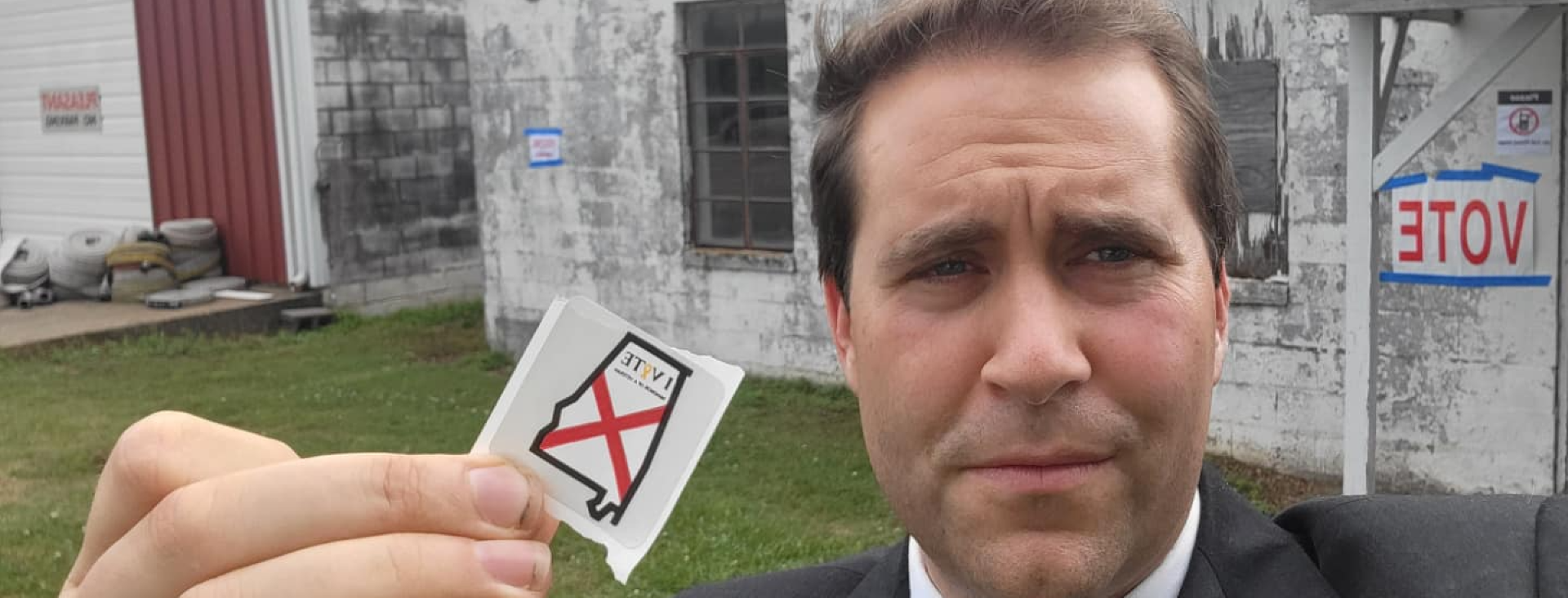The Alabama Republican Party chair who made his own voter ID and tried to circumvent state voting laws also filed a brief in the Supreme Court case heard yesterday supporting the state’s allegedly racist congressional map, court records show.
State GOP Executive Committee Chair John Wahl argued that Alabama law doesn’t create any obstacles to voting, even though recent reports show he personally faced such obstacles both before and after filing his brief – and only overcame them by throwing his political weight around.
Wahl allegedly pressured poll workers to let him vote with a fake ID in 2020 and then, less than a week before defending state law to the Supreme Court, got a poll worker bounced for enforcing it. Voter ID laws have been found to suppress Black votes disproportionately.
Despite Wahl’s documented use of a fake ID card to vote, no legal action has been initiated against him. Black officials convicted of voter fraud in the state, however, have been prosecuted and as recently as 2019 sentenced to prison.
The power of Black voters is at stake in the case of Merrill v. Milligan, which the Supreme Court heard yesterday. As SCOTUSblog reported, the court appears inclined to side with Alabama and remove one of the remaining pillars of the landmark Voting Rights Act (VRA). The right-wing court has previously concluded, despite all the evidence to the contrary, that racism has largely been purged from America’s political systems, rendering the VRA unnecessary.
In this case, the state of Alabama is accused of packing a single district with far more Black voters (who make up more than a quarter of the state population) than are needed to ensure they have a voice there. That leaves far fewer Black voters in other districts – where the new GOP lines have chopped up their communities to leave them virtually voiceless in six out of the state’s seven districts.
The state argues that it should be allowed to be “race-blind” when drawing districts – meaning if the outcome of drawing lines for partisan reasons happens to dilute Black voting strength, that’s okay because it’s correlation, not causation. In a May 2 amicus curiae filing, Wahl agreed.
Wahl’s argument was twofold. He defended the new map to the Supreme Court, claiming it doesn’t abridge the right to vote. He also wrote that Alabama election results are due not to racial gerrymandering, but to the “partisan effect of equal voter participation.”
Wahl claims that, “It is well-established that the official obstacles to voter registration and turnout by blacks in Alabama have ended.” Wahl argues that similar registration rates for Black and White voters imply there are no obstacles to Black voting, eliding the possibility that Black people in Alabama might register in greater numbers than White people if there were fewer obstacles to voting.
One such obstacle is Alabama’s voter ID law. And Wahl would know that the law requiring voter ID can be an obstacle to voters because in 2020, Wahl himself was challenged over his voter ID. He and his family pressured poll workers to let them vote despite not having a legitimate ID, or in some case any ostensible ID at all.
Unlike most Black voters lacking proper ID, however, Wahl was able to vote because he had something they didn’t. It wasn’t just his fake ID, it was his position in the Republican Party.
Alabama Media Group State Political Columnist Kyle Whitmire has chronicled both Wahl’s run-ins with voting obstacles there, but also Wahl’s use of his power to overcome them.
Earlier this week, Whitmire reported that Wahl not only attempted to vote – and succeeded – with a voter ID he made himself, but also falsely claimed to poll workers that the ID had been officially issued.
That news came after Whitmire previously revealed that Wahl used his clout to have a retiree dismissed as a poll worker. Clyde Martin had volunteered to work the polling sites because he cared about election integrity. Too much, as it turned out.
After Wahl pressured Martin to let him and his family vote in 2020 despite their lack of valid IDs, Martin wrote to Wahl to let him know they would need to bring proper ID for the next election. Whitmire obtained public documents showing that on April 28, just four days before telling the Supreme Court that Alabama law has no voting obstacles, Wahl complained about Martin enforcing that law. County officials then bounced Martin from his post.
Wahl voted again without legal ID in Alabama’s primaries later in May.
But while Wahl has been willing to use his political clout to facilitate his ability to vote, he’s been more restrained on issues where race is an obvious factor.
When a local politician used the n-word in a public meeting, Wahl condemned it, but reportedly did not call for their resignation. In another incident, one writer characterized Wahl as “blindingly” silent when a county party official shared a drawing intertwining imagery of the GOP and the KKK.

